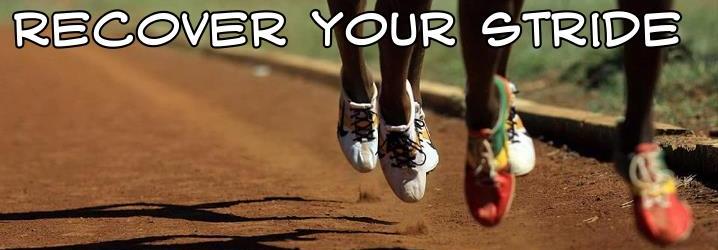 |
| On his way to winning the 1975 Falmouth Road Race |
I bought a copy of his first autobiography when it first came out it 1984: Olympic Gold: A Runner's Life and Times, so I wasn't too keen to shell out the bucks when a new autobiography from Frank Shorter came out this year, particularly when I started hearing about the many factual mistakes in the book that an editor should have caught and corrected. So I sort of ignored getting a copy of the book My Marathon: Reflections of a Gold Medal Life until I noticed that the Kindle edition of the book was only $2.99 (compared to the hardcover price of $26 on Amazon). I knew that the book would have new information on the abuse charges that Frank had been recently discussing in relationship to his father and I wanted to hear what Frank had to say so I splurged the small amount of cash needed to buy it and downloaded a copy.
 |
| Many years ago at Fitness University in Nashua, NH with Frank and two of my children. |
 |
| After a run with Frank in Hollis, NH about 20 years ago. |
Most of the stories here are like a greatest hits of his career. A runner who hasn't lived through the events of Franks life through the books, running magazines, and races that he has run may find the telling of his life interesting and I would say necessary if you are a runner. Those of us from the road running glory days will appreciate the new angle on things, but will also realize that Frank can't write about all the races that he has run that are missing in this book. Probably due to how Frank has compartmentalized his life due to his childhood experiences and his schooling as a lawyer, this book is reflective of the facts and how they all fit together. As much as Frank thought out how he would win the gold medal, and planned and trained for that, in Munich, his writings give an outline of his experiences in races and in transforming running into the sport it is today. On the other hand, Frank doesn't write as much about his feelings, nor does he give much insight into the internal struggles that he may have faced. And this is to be expected.
 |
| My signed copy of The Frank Shorter Story |
 |
| Frank signed this for my class a few years ago, then looked at it, laughed, and rewrote the message in a different way on another board. |
This book is well worth a read in finding out how a champion athlete trains and thinks and would recommend that you read it particularly while it is now selling at Amazon for only $2.99 for the Kindle version.
I have already started to read another running Kindle version bargain that I also bought and this one was only $1.99: First Ladies of Running: 22 Inspiring Profiles of the Rebels, Rule Breakers, and Visionaries Who Changed the Sport Forever by Amby Burfoot. While I may have grown up running races far behind the greats of running like Frank Shorter and Bill Rodgers, I saw more closely the struggle and growth of the first women to break down the barriers that held women back in sports and it is good to read about the history of many of these women that I have met, run with (or behind), and watched as they broke down the barriers holding them back.
Meb for Mortals is only $2.99 on the Kindle.
14 Minutes: A Running Legend's Life and Death and Life Alberto Salazar's autobiography is only $1.99. My review of that book is here.


1 comment:
I'm reviewing this book for my running blog--I host a monthly "book club". I enjoyed your review and appreciate your perspective! How lucky you are to have met this living legend!
Post a Comment